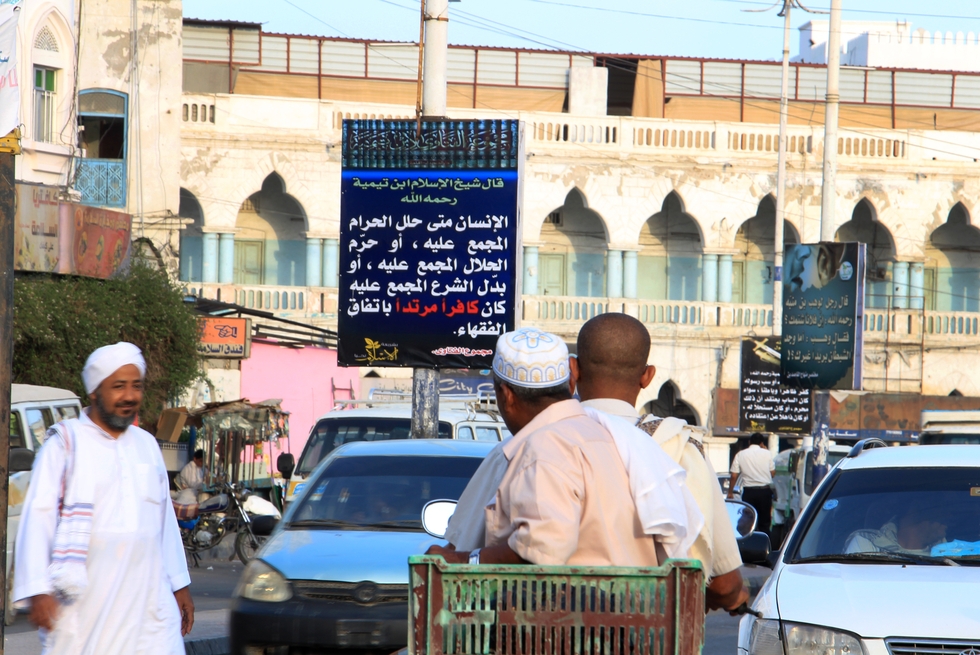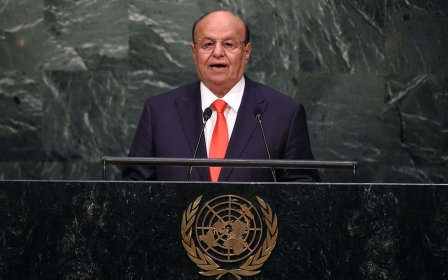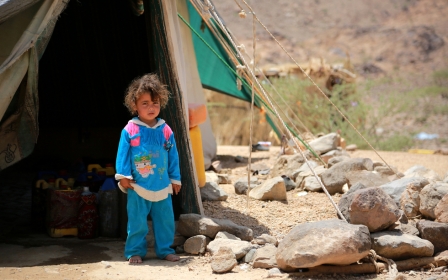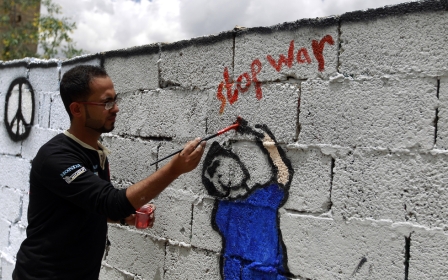Al-Qaeda suicide bombers kill Yemeni troops near Mukalla

Al-Qaeda militants, including three suicide bombers who blew up vehicles, killed at least 13 Yemeni government troops outside the southeastern port city of Mukalla on Thursday, a military official said.
Several soldiers were also wounded in the attack on the eastern outskirts of the Hadramawt provincial capital, which the army recaptured from al-Qaeda in the Arabian Peninsual (AQAP) last month, ending a year of the group's rule, the official said.
One suicide bomber rammed a vehicle packed with explosives into the gate of a base in the Khalf district, followed immediately by a second, who blew up a car in the centre of the camp, the official said.
Al-Qaeda militants clashed with soldiers outside the base immediately after the bombings.
A third suicide bomber targeted the nearby residence of the commander of Hadramawt's second military region, General Faraj Salmeen, but he escaped unharmed, the official said.
The commander of the province's first military region, General Abdulrahman al-Haleeli, survived a suicide bombing against his convoy on Wednesday that killed four of his guards.
AQAP had been in control of Mukalla since 2 April 2015, and the removal of the group from the city was initially greeted with celebration.
“At this historic moment, I am pleased to declare that the city of Mukalla has become free from all elements that undermined people’s security for a year. They have gone for good,” Major General Faraj al-Bohsini said following the liberation of the city.
However, some residents of the city were apprehensive about a possible return by AQAP if the security situation was not maintained.
“If you asked people in this street what they want from the government, they would all say security,” said Munir, a salesperson at a shop in central Mukalla.
Munir told MEE he had grown accustomed to the public order strictly enforced by al-Qaeda and expected the government to continue to do the same.
“They should build a dignified security body like al-Qaeda and strike with an iron fist at those who breach the law. For a year, we have not seen civil disobedience or protesters who would block traffic and burn tyres,” he said, referring to past clashes between separatist protesters and government forces.
Al-Qaeda was widely criticised for stoning and whipping people, banning late-night wedding concerts and jailing shopkeepers who did not close their stores during prayer times.
But Riad, a barber in the old city of Mukalla, told MEE that al-Qaeda had also given them security and protected them from criminals.
“We want the government to be as feared as al-Qaeda,” he said.
“Before al-Qaeda, a thug could enter a shop and ask for a day’s earnings. Yemenis do not expect the government to provide them with jobs, they depend on themselves for a living. They only want peace.”
New MEE newsletter: Jerusalem Dispatch
Sign up to get the latest insights and analysis on Israel-Palestine, alongside Turkey Unpacked and other MEE newsletters
Middle East Eye delivers independent and unrivalled coverage and analysis of the Middle East, North Africa and beyond. To learn more about republishing this content and the associated fees, please fill out this form. More about MEE can be found here.




